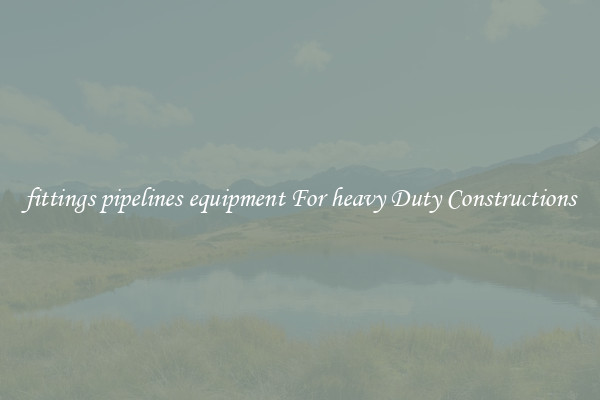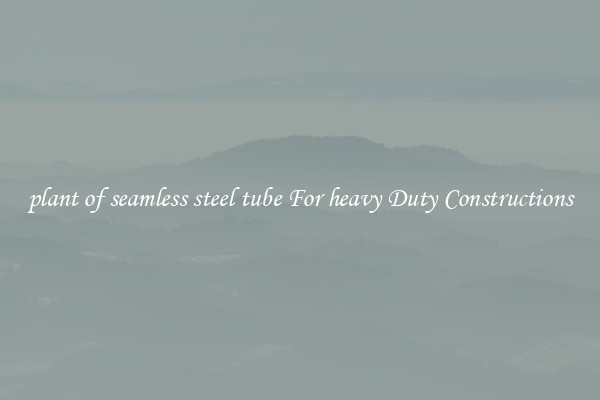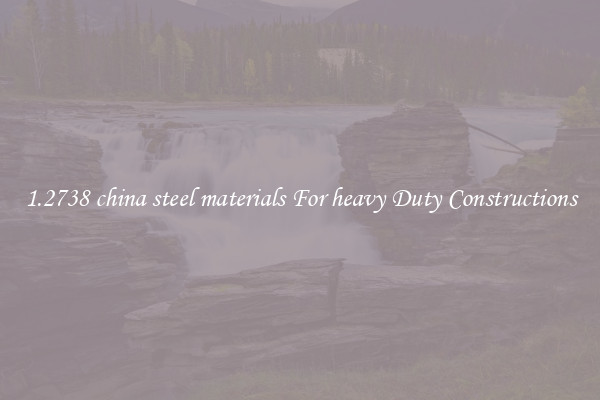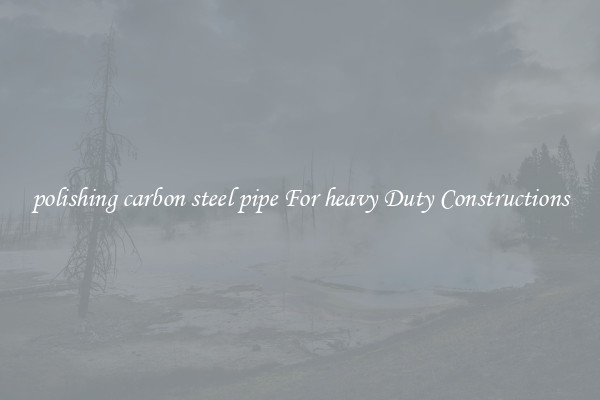fittings pipelines equipment For heavy Duty Constructions
In heavy-duty constructions such as in the oil and gas industry, mining, or large-scale infrastructure projects, the pipelines play a crucial role in ensuring the smooth flow of materials or fluids from one point to another. However, the effectiveness and durability of these pipelines heavily rely on the quality of the fittings and equipment used in their construction.

When it comes to fittings and equipment for heavy-duty constructions, there are a few key factors that need to be considered. Firstly, the materials used in the fittings should be strong enough to withstand the high pressure, extreme temperatures, and harsh operating conditions that are common in these industries. Common materials used for fittings in heavy-duty constructions include carbon steel, stainless steel, and alloy steel, which are known for their excellent strength and resistance to corrosion.
Furthermore, the design and installation of fittings should be done in a way that ensures a tight and leak-free connection between pipes. This is crucial to prevent any potential leakages of hazardous materials or fluids, which can have serious repercussions in terms of safety and environmental concerns. Therefore, it is important to choose fittings that are properly manufactured, tested, and certified to meet industry standards and regulations.
In heavy-duty constructions, where pipelines are often subjected to heavy loads or vibrations, it is essential to use equipment that can withstand such stresses. This includes the use of heavy-duty valves, pumps, and pressure regulators, among others. These equipment should be built to withstand high pressures, have robust construction, and be resistant to wear and tear.
Additionally, maintenance and inspection of the fittings and equipment should be performed regularly to ensure their optimal performance and longevity. This includes checking for any signs of corrosion, leaks, or damage, and taking appropriate measures to repair or replace any faulty components. Regular maintenance can not only prevent costly breakdowns and accidents but also help extend the overall lifespan of the equipment.
In conclusion, fittings and equipment for heavy-duty constructions are crucial for the safe and efficient operation of pipelines. The choice of materials, design, installation, and maintenance of these fittings should all be done carefully to ensure their effectiveness and durability under extreme conditions. By investing in high-quality fittings and equipment, industries can not only enhance the safety and reliability of their operations but also reduce operational costs and downtime in the long run.

View details

View details

View details

View details







